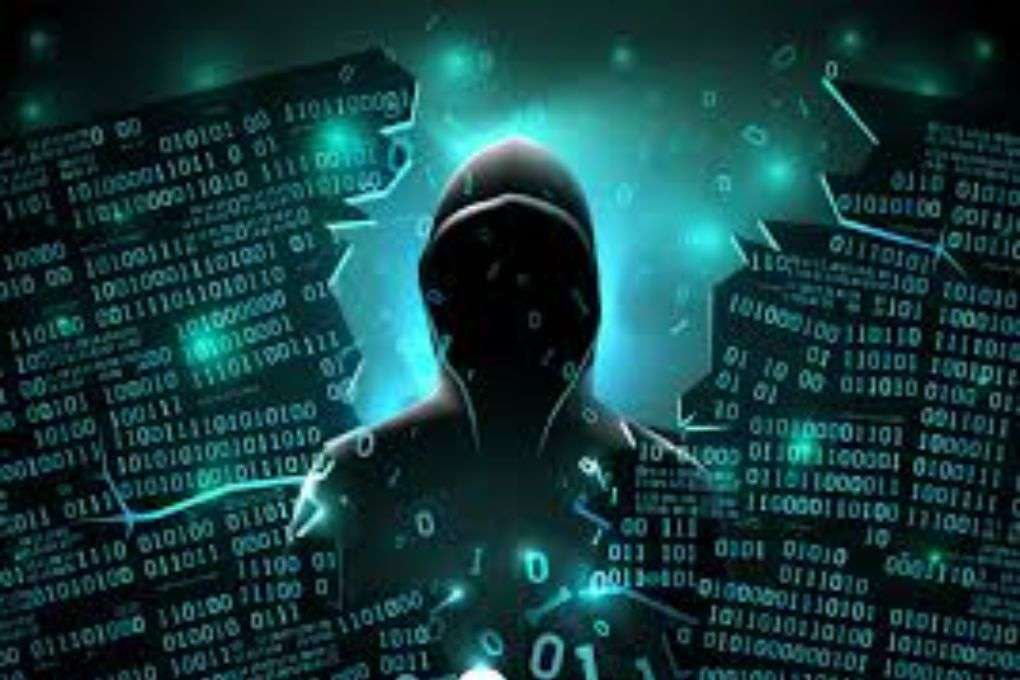Cyber Security & Ethical Hacking
Overview Cybersecurity is the practice of protecting computer systems and networks from unauthorized access, theft, damage, and other malicious activities. This involves a range of measures such as encryption, firewalls, access controls, and intrusion detection systems to prevent cyber attacks and keep data secure. Ethical hacking, on the other hand, …
Overview
Cybersecurity is the practice of protecting computer systems and networks from unauthorized access, theft, damage, and other malicious activities. This involves a range of measures such as encryption, firewalls, access controls, and intrusion detection systems to prevent cyber attacks and keep data secure.
Ethical hacking, on the other hand, is a practice of using the same tools and techniques as malicious hackers but with the goal of identifying vulnerabilities in a system and reporting them to the system owner so they can be fixed. Ethical hackers, also known as “white hat” hackers, are hired by organizations to test the security of their systems and identify weaknesses that could be exploited by malicious actors. The goal of ethical hacking is to improve the overall security of the system and prevent cyber attacks.
Benefits of Learning
- Protect Your Digital Assets: With the increasing amount of digital assets, it has become essential to protect them. Learning cybersecurity and ethical hacking skills can help you protect your digital assets from cyber attacks and keep your personal and professional data secure.
- Enhance Your Career Opportunities: The demand for cybersecurity and ethical hacking professionals is increasing rapidly as cyber threats become more prevalent. Learning these skills can open up numerous career opportunities in fields such as information security, cybersecurity consulting, penetration testing, and more.
- Improve Your Problem-Solving Skills: Cybersecurity and ethical hacking involve critical thinking, problem-solving, and attention to detail. Learning these skills can help you improve your ability to identify and solve complex problems, which can be valuable in many areas of your life.
- Raise Cybersecurity Awareness: Understanding the basics of cybersecurity and ethical hacking can help you raise awareness about the importance of cybersecurity among your peers and in your community.
- Stay Ahead of Cyber Threats: Cybersecurity threats are constantly evolving, and staying up to date with the latest threats and vulnerabilities is essential to staying ahead of them. Learning about cybersecurity and ethical hacking can help you keep up with the latest threats and take steps to protect yourself and your organization.
Who can Learn
- IT Professionals: Cybersecurity is an essential part of any IT professional’s job, and learning about ethical hacking can help them identify vulnerabilities in their systems and take steps to prevent cyber attacks.
- Business Professionals: Cybersecurity is important for any organization, and learning about ethical hacking can help business professionals understand the potential risks to their organization and take steps to protect it.
- Students: As the world becomes more digital, understanding cybersecurity and ethical hacking is becoming increasingly important. Students who learn about these topics can prepare themselves for future careers and become better equipped to protect their personal and professional data.
- Freelancers: Freelancers who work with clients’ data and confidential information can benefit from learning about cybersecurity and ethical hacking to ensure they can protect their clients’ data from cyber threats.
- Individuals: Anyone who uses the internet, social media, or other digital technologies can benefit from learning about cybersecurity and ethical hacking to protect themselves from cyber threats, identity theft, and other digital risks.
Overall, anyone who wants to protect themselves or their organization from cyber threats or gain a better understanding of cybersecurity can benefit from learning about cybersecurity and ethical hacking.
Career Scope
- Information Security Analyst: Information security analysts are responsible for protecting an organization’s computer systems and networks from cyber attacks. They develop and implement security policies and procedures, perform security audits and risk assessments, and monitor networks for security breaches.
- Penetration Tester: Penetration testers, also known as ethical hackers, are hired by organizations to test their computer systems and networks for vulnerabilities. They use the same techniques as malicious hackers to identify weaknesses and then report their findings to the organization.
- Cybersecurity Consultant: Cybersecurity consultants work with organizations to identify and assess their cybersecurity risks and develop strategies to protect against cyber threats. They may also provide training to employees on best practices for cybersecurity.
- Forensic Computer Analyst: Forensic computer analysts investigate cyber crimes and other computer-related crimes. They analyze digital evidence to identify the source of an attack or breach and help law enforcement agencies build a case against cyber criminals.
- Security Architect: Security architects design and build secure computer systems and networks. They work with other IT professionals to ensure that security is built into the design of all systems and applications.
Overall, the demand for cybersecurity and ethical hacking professionals is increasing rapidly, and there are a wide range of career paths available in this field.
Salary Package with Job Role
The salary package for cybersecurity and ethical hacking professionals varies depending on their job role, experience, skills, and location. Here are some estimated salary ranges for these professionals in India and abroad:
- Information Security Analyst: In India, the salary range for an information security analyst is between INR 3,00,000 to 12,00,000 per year, depending on experience and skills. In the USA, the salary range is between $50,000 to $120,000 per year.
- Penetration Tester: In India, the salary range for a penetration tester is between INR 4,00,000 to 15,00,000 per year, depending on experience and skills. In the USA, the salary range is between $70,000 to $150,000 per year.
- Cybersecurity Consultant: In India, the salary range for a cybersecurity consultant is between INR 5,00,000 to 20,00,000 per year, depending on experience and skills. In the USA, the salary range is between $75,000 to $200,000 per year.
- Forensic Computer Analyst: In India, the salary range for a forensic computer analyst is between INR 3,00,000 to 12,00,000 per year, depending on experience and skills. In the USA, the salary range is between $60,000 to $140,000 per year.
- Security Architect: In India, the salary range for a security architect is between INR 6,00,000 to 25,00,000 per year, depending on experience and skills. In the USA, the salary range is between $90,000 to $200,000 per year.
Overall, the salary package for cybersecurity and ethical hacking professionals is higher than the average salary for most other professions. The salary can vary depending on the job role, location, and other factors, but the demand for these professionals is expected to increase in the coming years.
Requirements To study
To study cybersecurity and ethical hacking, there are no specific requirements or prerequisites. However, having a basic understanding of computer systems and networks can be helpful. Here are some prerequisites that can help you learn cybersecurity and ethical hacking:
- Basic Computer Knowledge: Having basic computer knowledge, such as understanding how to use a computer, the internet, and common software applications, is essential.
- Networking Fundamentals: Understanding the basics of networking, such as how data is transmitted across networks and how devices communicate with each other, is important for learning cybersecurity and ethical hacking.
- Programming Skills: Basic programming skills in languages such as Python, Java, or C++ can be helpful, as many cybersecurity tools and techniques require programming knowledge.
- Security Concepts: Having a basic understanding of security concepts such as access control, authentication, and encryption can help you learn cybersecurity and ethical hacking.
- Problem-Solving Skills: Cybersecurity and ethical hacking require a strong problem-solving ability, as you will need to identify and solve complex security issues.
- Learning Attitude: Finally, having a learning attitude and a willingness to continuously learn and adapt to new technologies and threats is essential for a career in cybersecurity and ethical hacking.
Overall, with the right mindset and willingness to learn, anyone can learn cybersecurity and ethical hacking, regardless of their background or experience.
Key Features
- Comprehensive Curriculum: A good cybersecurity and ethical hacking course will cover a broad range of topics, including network security, cryptography, ethical hacking techniques, and cyber law and regulations.
- Hands-On Experience: A good course will provide hands-on experience, allowing students to practice their skills in a real-world environment. This can include labs, simulations, and projects.
- Industry-Relevant Content: The course should be designed to meet the needs of the cybersecurity industry, with up-to-date content that reflects the latest threats and techniques.
- Experienced Instructors: The course should be taught by experienced instructors who have practical knowledge of cybersecurity and ethical hacking.
- Certification: The course should provide a recognized certification upon completion, such as Certified Ethical Hacker (CEH), Certified Information Systems Security Professional (CISSP), or Certified Information Security Manager (CISM).
- Flexibility: The course should be flexible, with options for part-time, full-time, or online learning to accommodate the needs of different students.
- Career Support: A good course will provide career support to students, such as job placement assistance, resume building, and interview preparation.
Overall, a good cybersecurity and ethical hacking course will provide students with the knowledge, skills, and practical experience needed to pursue a successful career in this field.
Course Curriculum
Module 1. Introduction to Cybersecurity:
- This module provides an overview of the fundamental concepts and principles of cybersecurity, including the types of cyber threats, security policies, and common attacks.
Module 2. Networking Concepts:
- This module covers the basics of computer networks, including network architecture, protocols, and technologies, and network security.
Module 3. Operating System Security:
- This module covers the security of operating systems, including Windows, Linux, and Mac OS, and the common security threats and vulnerabilities that can affect them.
Module 4. Web Application Security:
- This module covers the security of web applications, including the common types of vulnerabilities that can be exploited by attackers and the techniques used to prevent or detect them.
Module 5. Cryptography:
- This module covers the basic concepts of cryptography, including encryption, decryption, and key management.
Module 6. Ethical Hacking:
- This module covers the techniques used by ethical hackers to identify vulnerabilities and potential security risks, including penetration testing, vulnerability assessment, and risk analysis.
Module 7. Cyber Law and Regulations:
- This module covers the legal and regulatory framework governing cybersecurity, including privacy laws, data protection, and intellectual property rights.
Module 8. Incident Response and Disaster Recovery:
- This module covers the processes and procedures used to respond to cyber incidents, including the incident response plan, disaster recovery, and business continuity planning.
Overall, a cybersecurity and ethical hacking course curriculum is designed to provide students with a broad and in-depth understanding of the fundamental concepts, principles, and skills needed to pursue a successful career in this field.
Instructor
Requirements
- Basic Computer Knowledge: Having basic computer knowledge, such as understanding how to use a computer, the internet, and common software applications, is essential.
- Networking Fundamentals: Understanding the basics of networking, such as how data is transmitted across networks and how devices communicate with each other, is important for learning cybersecurity and ethical hacking.
- Programming Skills: Basic programming skills in languages such as Python, Java, or C++ can be helpful, as many cybersecurity tools and techniques require programming knowledge.
- Security Concepts: Having a basic understanding of security concepts such as access control, authentication, and encryption can help you learn cybersecurity and ethical hacking.
- Problem-Solving Skills: Cybersecurity and ethical hacking require a strong problem-solving ability, as you will need to identify and solve complex security issues.
- Learning Attitude: Finally, having a learning attitude and a willingness to continuously learn and adapt to new technologies and threats is essential for a career in cybersecurity and ethical hacking.
Features
- Comprehensive Curriculum
- Hands-On Experience
- Industry-Relevant Content
- Experienced Instructors
- Certification
- Flexibility
- Career Support
Target audiences
- Students: As the world becomes more digital, understanding cybersecurity and ethical hacking is becoming increasingly important. Students who learn about these topics can prepare themselves for future careers and become better equipped to protect their personal and professional data.
- Freelancers: Freelancers who work with clients' data and confidential information can benefit from learning about cybersecurity and ethical hacking to ensure they can protect their clients' data from cyber threats.
- Individuals: Anyone who uses the internet, social media, or other digital technologies can benefit from learning about cybersecurity and ethical hacking to protect themselves from cyber threats, identity theft, and other digital risks.
- IT Professionals: Cybersecurity is an essential part of any IT professional's job, and learning about ethical hacking can help them identify vulnerabilities in their systems and take steps to prevent cyber attacks.
- Business Professionals: Cybersecurity is important for any organization, and learning about ethical hacking can help business professionals understand the potential risks to their organization and take steps to protect it.





